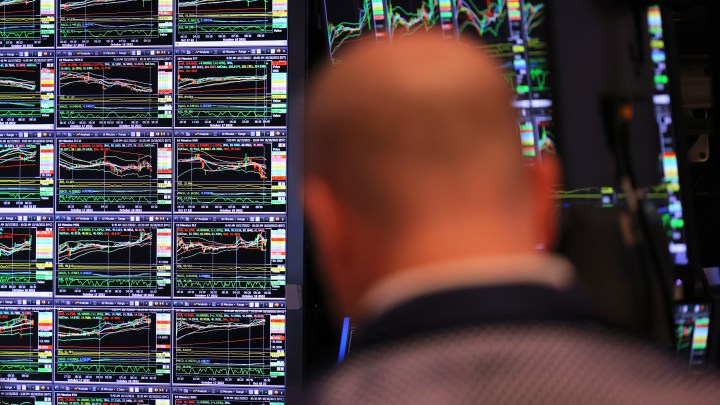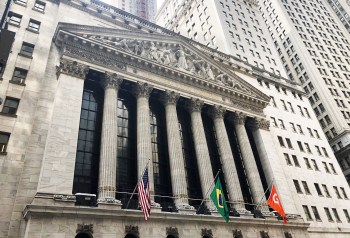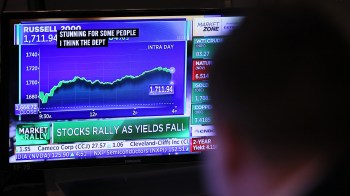
What the stock market is signaling about the future of the economy
What the stock market is signaling about the future of the economy

If this program was around 35 years ago today, things would have been pretty dire during “The Numbers” part of the show. On Oct. 19, 1987, stock markets crashed in what became known as “Black Monday.” The Dow fell over 22.5% — which remains its biggest one-day drop in history.
Of course, the Dow has grown a lot in the past 35 years. If you’re counting, it’s up over 1,600%. But that’s probably cold comfort to anyone who’s been watching their 401(k)s this year.
This week, research from Bank of America found that stocks are likely to fall further into 2023. Another report, from Citibank, suggested that stocks are increasingly betting on a recession.
So what can we make of all the signals the stock market is sending right now?
Let’s start with what we know for sure: The stock market has not been happy that interest rates are rising, according to Karyn Cavanaugh, chief investment officer for Carolinas Wealth Management.
“Higher interest rates slow down the economy, they slow down everything, including consumer spending. So that does affect profits as well,” Cavanaugh said.
But this past quarter, corporate profits have been relatively decent. That’s one reason the stock market rallied earlier this week, she added.
“This comes out of the blue. Like, ‘Hey, I guess things aren’t as bad as we thought.’ And I think the market might be a little oversold, and there are some good companies out there that are earning good profits and having pricing power.”
But stock market signals aren’t always great predictors of what will happen to the economy.
“You know, the standard joke about the stock market is that the stock market has predicted seven of the last five recessions,” said Ian Dew-Becker, a finance professor at Northwestern University.
We do still have some clues about what will happen, he said. Take the index of market volatility, known as the VIX. That measures how volatile investors think the stock market will be over the next month.
“And historically, what we observe is that the VIX is a pretty good predictor of where that volatility is going to go,” he said. “It’s far from perfect, but it’s better than most of our alternatives.”
Right now, the VIX is above its long-term average. That’s a sign that markets themselves could fall further, per Quincy Krosby with LPL Financial.
“The kind of extreme up and downs that we have not always, but typically, are emblematic of a bear market,” Krosby said. “A bear market that’s trying to find a bottom.“
But the fact that markets are so volatile is also a sign that they simply don’t know how much worse the economy will get, Krosby added. For instance, a recession could happen, but how severe will it be?
“We have all different kinds of recessions, right? We’ve got some that are fairly shallow, some that are much deeper and last a long time,” she said.
That’s why stock market signals are likely to keep changing, Krosby said, depending on economic data and what the Federal Reserve does with interest rates later this year.
There’s a lot happening in the world. Through it all, Marketplace is here for you.
You rely on Marketplace to break down the world’s events and tell you how it affects you in a fact-based, approachable way. We rely on your financial support to keep making that possible.
Your donation today powers the independent journalism that you rely on. For just $5/month, you can help sustain Marketplace so we can keep reporting on the things that matter to you.

















